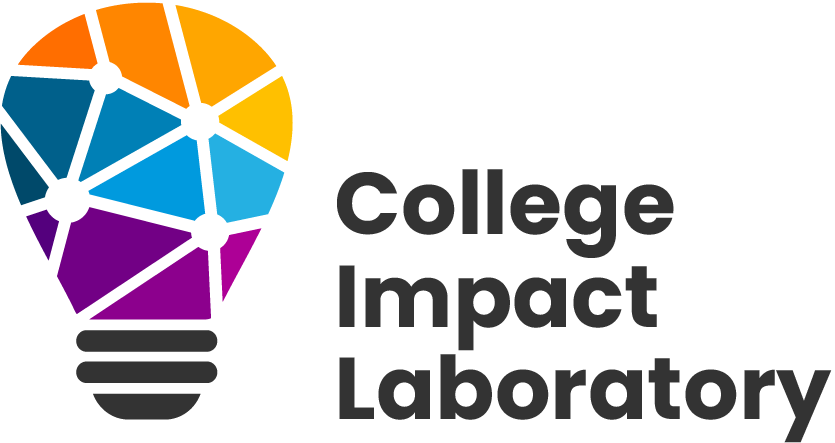
EmPOWERment
Convergent Graduate Training for a Sustainable Energy Future
About the Project
EmPOWERment is an interdisciplinary, multifaceted training program funded by U.S. National Science Foundation designed to accelerate the development of Ph.D. students who are experts in the design, application, and widespread adoption of sustainable, decarbonized energy systems. The program aims to support three broad, industry-informed goals, including:
To prepare a diverse cohort of versatile graduate student trainees with the innovation capacity, self-efficacy, and collaborative capacity to influence positive change in sustainable energy systems;
To leverage and catalyze convergent research for sustainable energy solutions with energy sector partners, using OSU’s campus as a sustainable energy testbed;
To refine this new convergent traineeship model through continuous evaluation and disseminate replicable best practices and lessons learned.
Program Evaluation
The EmPOWERment program evaluation is both summative and formative, involving the on-going collection of data on student trainees’ learning and development, experiences, and perceptions regarding the administrative functioning of the program’s many elements, in addition to data collected from affiliated faculty and staff. The overarching goal of the evaluation is to determine the effectiveness of the program’s many elements and provide recommendations for further program refinement.
The evaluation employed a mixed-methods approach for assessing program outcomes and processes. The outcomes evaluation relied on quantitative data, collected through surveys administered at two points during this academic year, within a longitudinal design containing repeated measures for assessing the effectiveness of the program. The process evaluation relied upon document reviews and qualitative interviews to assess experiences, understandings, and perceptions of student trainees, as well as affiliated faculty and staff.
EmPOWERment Activities
EmPOWERment students engage in various activities designed to enhance innovation capacity, self-efficacy, and collaborative capacity.
With the program’s 10 learning outcomes in mind, trainees participate in the following activities:
Bootcamp: The two-week bootcamp for incoming Ph.D. students serves as a comprehensive introduction to the EmPOWERment program, acquainting students with its objectives, campus environment, and key faculty and staff members. It facilitates a smooth transition into the program and focuses on interdisciplinary research and collaboration. Students form teams need to tackle a problem-based learning challenge, engaging in data gathering, stakeholder interviews, and consultation with faculty. The bootcamp culminates in team presentations, receiving feedback from faculty and peers, ultimately fostering research and collaboration skills.
Energy SCOPE: Student Community of Practice and Engagement (SCOPE) is a bi-weekly program organized by the Battelle Center for Science, Engineering, and Public Policy. SCOPE sessions introduced students to industry professionals, fostered networking, and encouraged informal mentorships, enhancing their social development and exploration of non-academic career paths.
JOULE: The JOULE energy seminar program is a bi-weekly activity for affiliated faculty members to share their research interests with students and create a space for students to build networking connections and foster a sense of community within the program. Topics covered encompass science, engineering, and public policy. The seminar is designed and implemented to address the need for increased community interaction and engagement for both faculty members and students. These sessions serve as opportunities for faculty members and students to engage in meaningful discussions, exchange knowledge, and explore potential collaborative research endeavors.
Academic Coursework: In addition to two mandatory core courses (foundations of data-driven sustainable energy systems and a capstone project course taken pre-candidacy), trainees choose four elective courses from across five different themes: energy systems modeling; information systems; energy, policy, regulation, and economics; energy-business modeling; and energy technology, components, and sub-systems.
Mentorship: Each trainee is assigned an internal mentor from the EmPOWERment faculty team, separate from their academic advisor, ensuring consistent support and guidance. Internal mentors support students in navigating the program, offering professional and personal development advice, coaching, evaluation, and goal-setting. Trainees are also paired with external mentors from the energy sector to explore diverse career paths, build professional networks, and discover internship and research opportunities. Annual progress reviews and IDP adjustments ensure students receive the guidance they need to excel in the EmPOWERment program.
Evaluation & Research Activities
The EmPOWERment evaluation & research team uses a variety of analytical approaches to examine the efficacy of the project.
Surveys: EmPOWERment trainees complete an initial survey before staring their first semester and a survey at the end of their first spring semester
Bootcamp Evaluation: EmPOWERment trainees complete the Bootcamp Evaluation Survey on the last day of Bootcamp program.
Evaluation Interview and Self-Reflection: These 45-minutes virtual individual interviews with the trainees inquire about their collegiate experiences during the first semester of the program.
Presentations and Papers
Future Presentations
Presentations and Papers
Weng, Y., Creamer, E. & Mayhew M. J. (2024, November). The Role of Reflective Practice in Enhancing Interdisciplinary Team Among STEM Ph.D. Work-in Progress Presentation presented at Association for the Study of Higher Education, Minneapolis, MN, United States.
Weng, Y., McChesney, E.T., Selznick B. & Mayhew M. J. (2024, November). Unleashing Innovation: The Impact of Interdisciplinary Training on Graduate Team Scientists' Innovation Capacities. Paper Presentation presented at Association for the Study of Higher Education, Minneapolis, MN, United States.
Bielicki, J., Weng, Y., Creamer, E.& Mayhew M. J. (2024, June). Cultivating Ph.D. Students Innovation Capacities Through Interdisciplinary Learning. Paper Presentation presented at American Society for Engineering Education, Portland, OR, United States.
Weng, Y., McChesney, E. T., & Mayhew M. J. (2024, February). Examining Reflective Practice for Enhanced Interdisciplinary Communication in STEM Graduate Students. Poster session presented at the EHE Research Forum at The Ohio State University, Columbus, OH, United States.
Weng, Y., McChesney, E. T., & Mayhew M. J. (2024, February). Perceptions on Development as Team Scientists in an Interdisciplinary STEM Ph.D. Program. Poster session presented at the EHE Research Forum at The Ohio State University, Columbus, OH, United States.
Weng, Y., McChesney, E.T., & Mayhew M. J. (2023, November). Examining the Development of Team Scientists: Experiences in an Interdisciplinary STEM Ph.D. Program. Work-in Progress Presentation presented at Association for the Study of Higher Education, Minneapolis, MN, United States.
Weng, Y., Creamer, E., & Mayhew M. J. (2023, October). Unlocking the potential of interdisciplinary STEM program: Leveraging campus resources for enhance outcomes [Poster presentation]. NSF Research Traineeship (NRT) annual meeting at Arizona State University, Tempe, AZ, United States [Remote].
Weng, Y., McChesney, E. T., & Mayhew M. J. (2023, February). Perceptions on Development as Team Scientists in an Interdisciplinary STEM Ph.D. Program. Poster session presented at the EHE Research Forum at The Ohio State University, Columbus, OH, United States.
McChesney, E. T., Agarwal, A., Bielicki, J., Dormady, N., Irwin, E., Mayhew, M. J., Newton, E., Quiring, S., Ramnath, R., & Sayre, J. (2021, January). Effects of a level-setting bootcamp for interdisciplinary STEM students [Poster presentation]. NSF Research Traineeship (NRT) annual meeting. [Remote].
Mayhew, M. J., Selznick, B. & McChesney, E. T. (2021, October 13). Graduate students want to solve ‘wicked problems’. Are universities delivering? Edsurge. https://www.edsurge.com/news/2021-10-13-graduate-students-want-to-solve-wicked-problems-are-universities-delivering
Mayhew, M. J., Selznick, B. S. McChesney, E., Winkler, C., & Shaheen, M. (2021, June 2). Want to hire an innovative college graduate? Choose a transfer student. EdSurge. https://www.edsurge.com/news/2021-06-02-want-to-hire-an-innovative-college-graduate-choose-a-transfer-student


